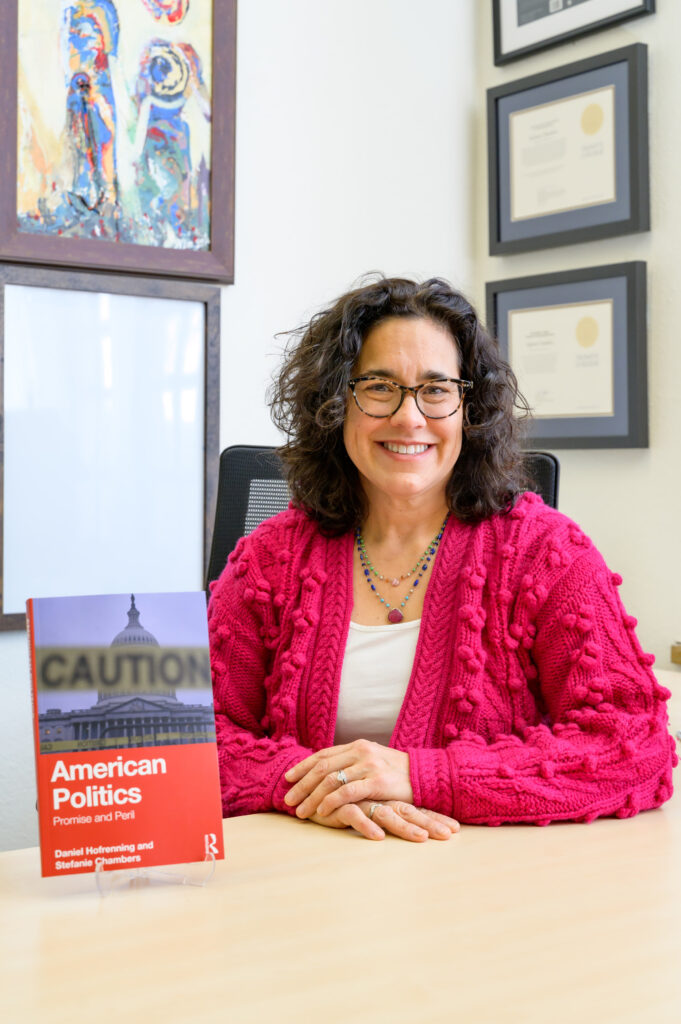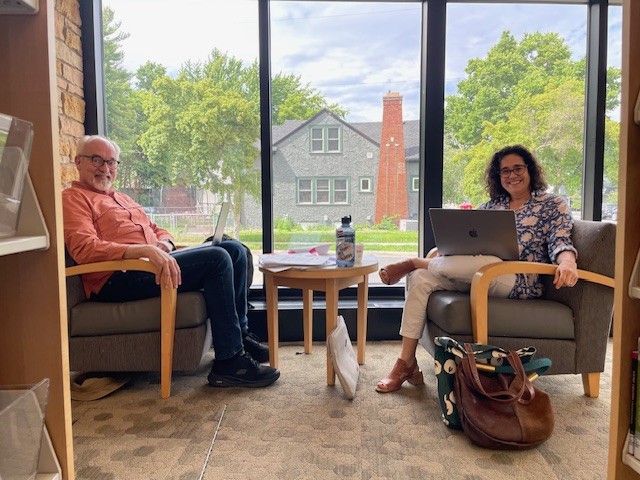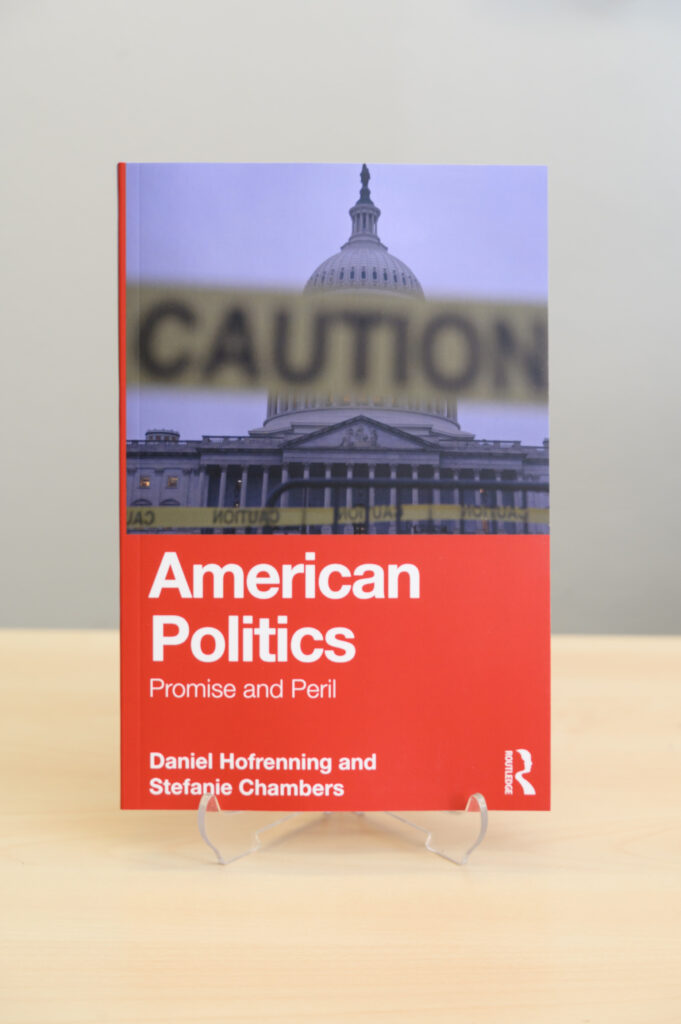Trinity Professor and Students Collaborate on New American Politics Textbook
A Trinity College faculty member has co-authored a new textbook that encourages undergraduate students to think deeply and critically about the workings of the U.S. government.

American Politics: Promise and Peril (Routledge, 2025) was written by Stefanie Chambers, John R. Reitemeyer Term Professor of Political Science at Trinity, and Daniel Hofrenning, professor of political science at St. Olaf College, and includes contributions by student researchers from both institutions. Published this month, the book is designed for use in undergraduate courses on American government, American politics, or civics.
“It’s not a traditional textbook that merely covers the standard topics such as the Constitution, presidency, federalism, and civil rights. Instead, it provides a brief overview of these, followed by topics that engage undergraduate students in some of the most pressing political questions of the day,” Chambers said. “The book builds upon our decades of work as liberal arts faculty who seek to empower our students to engage in our democratic system.”
Chambers had never published a textbook before, but when Hofrenning approached her with this project, she saw it as an opportunity to create a book that paired well with the type of informed engagement she emphasizes in her teaching. “Our goal is to help students think about their agency and to see that democracy is a system where people have the power to make change,” Chambers explained. “The material is presented in a balanced way, relies on empirical data, and helps students understand those with different political views.”
In addition to standard informational and historical textbook contents, American Politics integrates new political science scholarship and topics of interest to undergraduate readers, Chambers said.

“We’ve designed this book to engage students with group exercises and discussion questions that spark meaningful classroom conversations,” she explained. “We provide professors with curated lists of recommended articles and books, documentary films, and digital resources that connect core concepts to contemporary issues. For instance, in our section on Congress, students first establish foundational knowledge, then deepen their understanding by engaging with current research and multimedia resources before participating in exercises that help them understand their own role in the political system. This approach transforms passive learning into an active, relevant experience.”
The book covers work by scholars who are underrepresented in political science, Chambers said. “I wanted to include a broad range of professors who have published important political science scholarship,” she said. “We feature scholars who are widely cited, but also women, scholars of color, and others whose work may not get as much attention.”
Biographies of inspirational figures that are woven into the chapters are largely written by undergraduate research assistants, including Lea Ban ’24 and Zoe Kon ’24. St. Olaf student Ethan Landgreen wrote biographies, helped with footnotes, and provided detailed feedback on each chapter. Another of Chambers’ research assistants, Kash Jain ’24, helped to frame a chapter about civil rights.
“I think the research assistants helped give us the perspective we needed to write something engaging for undergraduates, won’t be too dense, and touches on things that matter to college students today,” said Chambers. “The research and collaborative skills our students gained through this project will help them in whatever they decide to do next.”

Kon, who completed a major in political science and a self-designed minor in public health and bioethics, was a teaching assistant for Chambers’ “American National Government” course and worked with her on the textbook. “Being involved in the creation of a textbook was an incredible opportunity to gain research and writing experience, while also deepening my understanding of the material,” said Kon. “It allowed me to work closely with Professor Chambers in a more collaborative setting, building a meaningful mentor-mentee relationship.” Kon currently works as an administrative assistant at a small medical practice in her home city of Los Angeles while seeking opportunities in public health policy in the private sector.
Jain helped the book frame politics as a way to solve public problems and edited through the lens of a student and a young person engaged with a changing world. “I tried to help show how politics is a vehicle for change and added examples meant to be familiar and relevant to a young audience,” he said. “Students are the ones who read textbooks, so why not have them involved in creating them?” Jain currently works for the Massachusetts Commission Against Discrimination, a state agency that enforces protections against discrimination in employment, housing, and public accommodations.
Chambers emphasizes that understanding American politics is essential for all undergraduates, regardless of their chosen major. “The political system shapes every aspect of our lives—from healthcare and education to economic opportunities and civil rights,” she said. “Today’s students are witnessing firsthand how political decisions directly impact their futures, their communities, and their families. By understanding how the system works, students across all disciplines gain the knowledge to effectively voice their support or concerns, whether through voting, community organizing, policy advocacy, or civil discourse.”
Hofrenning and Chambers are already discussing producing a second edition of the textbook. “Given the rate of change in the current federal administration, we have a lot to consider as we integrate updates,” Chambers said.
Chambers received support for this project from Trinity’s Political Science Department, The Leonard E. Greenberg Center for the Study of Religion in Public Life, and the Dean of the Faculty Office and Academic Affairs.
